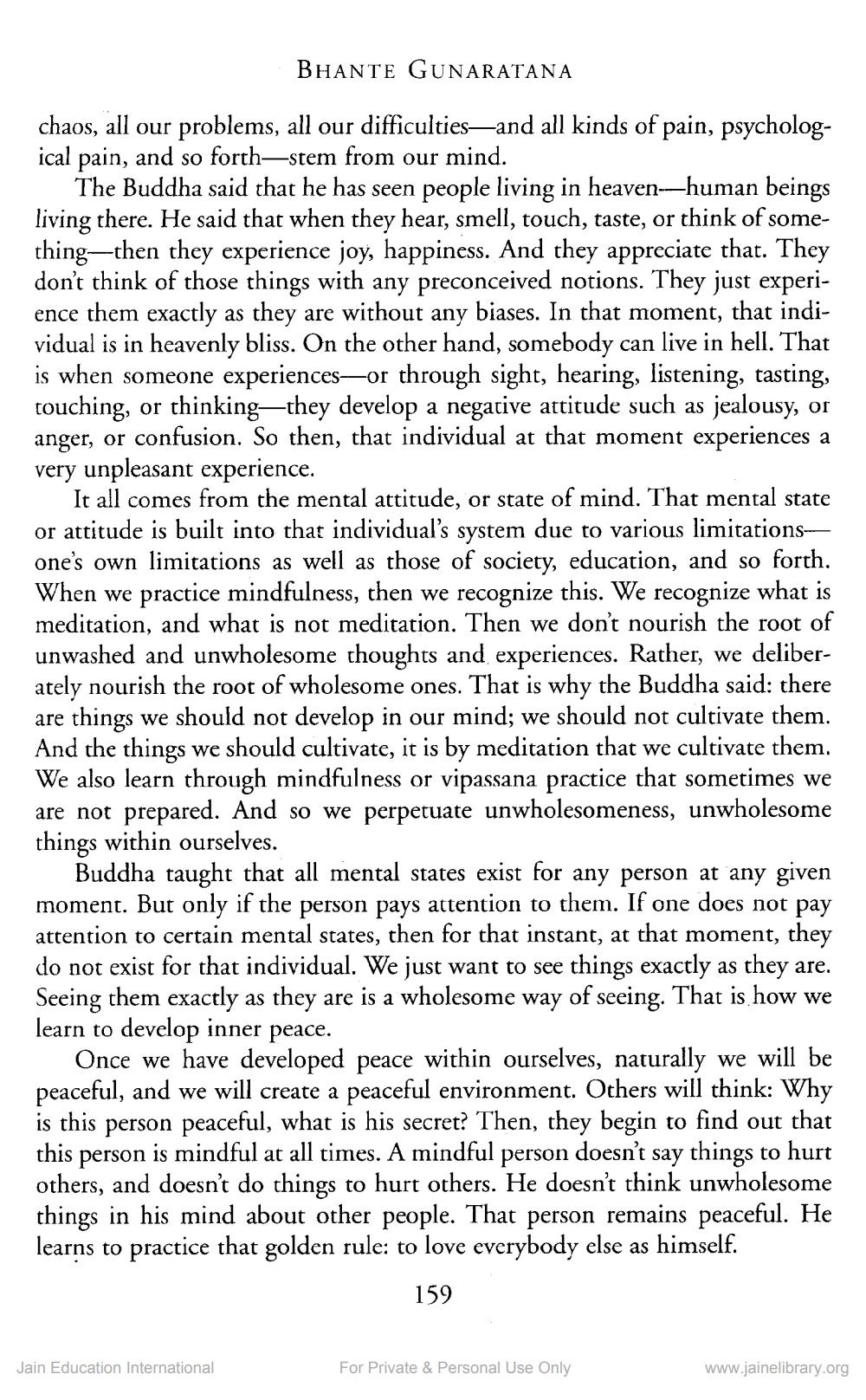________________
BHANTE GUNARATANA
chaos, all our problems, all our difficulties—and all kinds of pain, psychological pain, and so forth—stem from our mind.
The Buddha said that he has seen people living in heaven-human beings living there. He said that when they hear, smell, touch, taste, or think of something—then they experience joy, happiness. And they appreciate that. They don't think of those things with any preconceived notions. They just experience them exactly as they are without any biases. In that moment, that individual is in heavenly bliss. On the other hand, somebody can live in hell. That is when someone experiences—or through sight, hearing, listening, tasting, touching, or thinking—they develop a negative attitude such as jealousy, or anger, or confusion. So then, that individual at that moment experiences a very unpleasant experience.
It all comes from the mental attitude, or state of mind. That mental state or attitude is built into that individual's system due to various limitationsone's own limitations as well as those of society, education, and so forth. When we practice mindfulness, then we recognize this. We recognize what is meditation, and what is not meditation. Then we don't nourish the root of unwashed and unwholesome thoughts and experiences. Rather, we deliberately nourish the root of wholesome ones. That is why the Buddha said: there are things we should not develop in our mind; we should not cultivate them. And the things we should cultivate, it is by meditation that we cultivate them. We also learn through mindfulness or vipassana practice that sometimes we are not prepared. And so we perpetuate unwholesomeness, unwholesome things within ourselves.
Buddha taught that all mental states exist for any person at any given moment. But only if the person pays attention to them. If one does not pay attention to certain mental states, then for that instant, at that moment, they do not exist for that individual. We just want to see things exactly as they are. Seeing them exactly as they are is a wholesome way of seeing. That is how we learn to develop inner peace.
Once we have developed peace within ourselves, naturally we will be peaceful, and we will create a peaceful environment. Others will think: Why is this person peaceful, what is his secret? Then, they begin to find out that this person is mindful at all times. A mindful person doesn't say things to hurt others, and doesn't do things to hurt others. He doesn't think unwholesome things in his mind about other people. That person remains peaceful. He learns to practice that golden rule: to love everybody else as himself.
159
Jain Education International
For Private & Personal Use Only
www.jainelibrary.org




